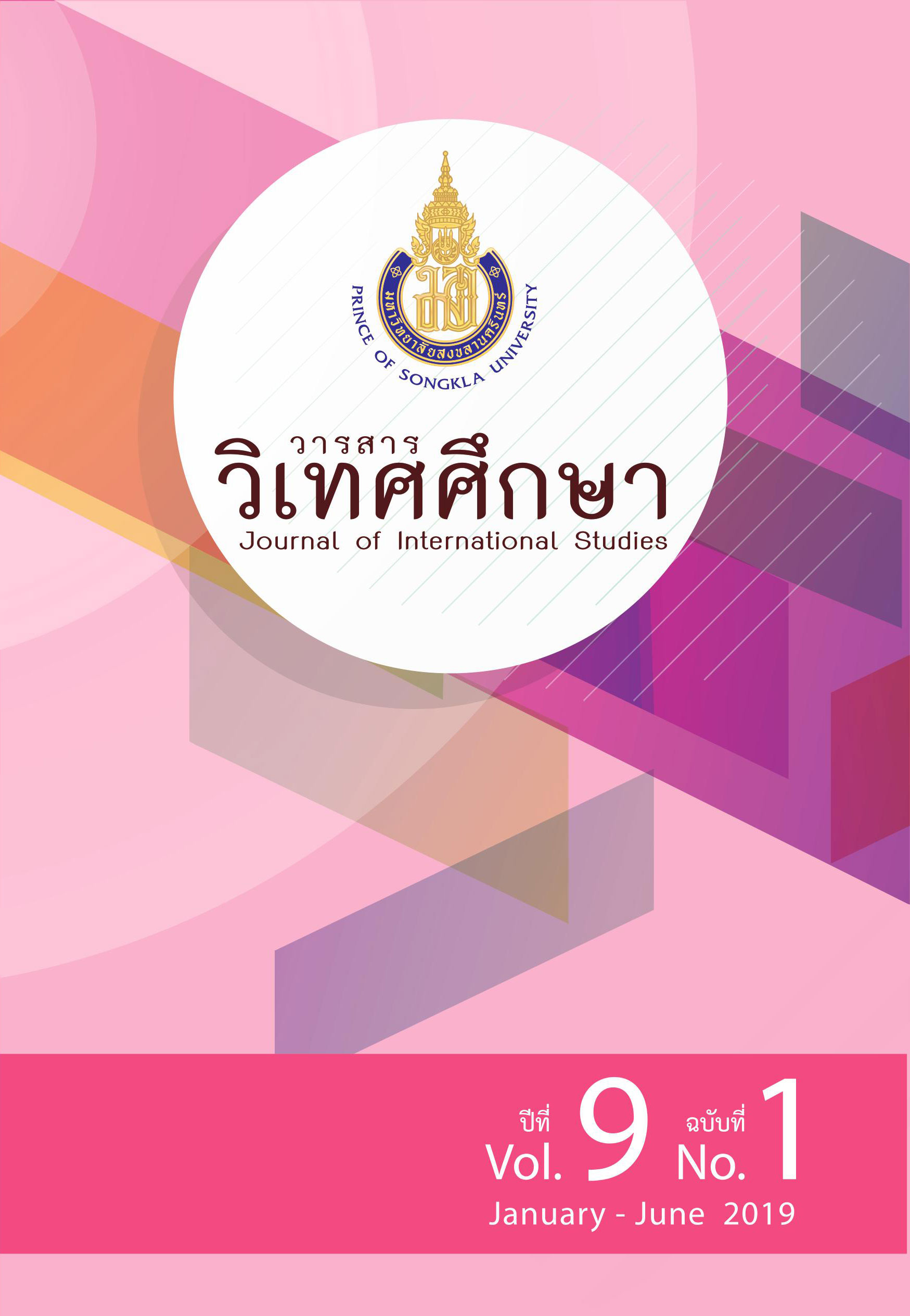PL-SKT Word Formatting in Thai Politics: New Approaches to Compound Thai Words
Main Article Content
Abstract
Through an analysis of Pali-Sanskrit (PL-SKT) word formatting in Thai political terminology, new approaches to compound words are identified. The objectives of this study were to explore the PL-SKT word formation; especially compound words and new approaches employed in Thai political terminology. The conceptual framework of this study consists of the use of compound word formation theory namely, PL-SKT word formation and Thai
word formation. A qualitative method was employed and data consisted of political terms in political documents and books in Thailand. The findings revealed that PL-SKT has four categories of word formation namely, primary derivative (Kitaka), secondary derivative (Taddhita), compound (Samasa) and prefix (Upasagga). The Thai language
uses them to format words in the field of political terminology. We observed that in the current formatting of compound words, there are the following two aspects: putting an adjective in front of nouns, and putting a prefix in front of a noun or others. These have generally been found in formatting political terminology. However, some
compound words putting the adjective behind the noun are used occasionally in the Thai language.
New approaches to compound words were found; 1) words that are compounded between PL-SKT and Thai words under PL-SKT grammar are formatted through the compounding way of Thai compounds and 2) words that are compounded between PL-SKT and Thai words under PL-SKT grammar are formatted through the compounding way of PL-SKT compounds. Thus the two new approaches to words are undoubtedly expected to
be more employed in the future based on the foundation of PL-SKT Word Formation.
Article Details
Statements and opinions expressed in articles herein are those of the authors and do not necessarily reflect the position of the editors or publisher.
Article, information, text, image, etc. which are published in Journal of International Studies, belong to Journal of International Studies. If anybody or any organization would like to use part or whole of them, they must receive written permission from Journal of International Studies before usage.
References
Kowit Pimpuang. (2007). Pali-Sanskrit Loanwords. Bangkok: Department of Thai Language, Faculty of Humanities, Kasetsart University.
Kowit Pimpuang. (2007). Word Formation of Pali and Sanskrit Influences to Thai Language. Journal of Korean Association of Thai Studies, 14 (10), 1-27.
Kowit Pimpuang. (2009a). Exploring Modern Pali-Sanskrit to Political Meanings. Bangkok: Department of Thai Language, Faculty of Humanities, Kasetsart University.
Kowit Pimpuang. (2009b). Phenomenon of Pali and Sanskrit: The Distinctive Role of Dead Languages to Living Thai Words. Journal of Institute for Foreign Language Studies, 23 (2), 55-75.
Kowit Pimpuang. (2016). How Sunthorn Phu Expressed his Aesthetic Values through Sanskrit? Journal of Language and Linguistics, 34 (2), 46-62.
Kowit Pimpuang. (2017). PL-SKT Terms and Their Uses in Reflecting the Political Society of Thailand. ICHLSS 2017 Conference Proceedings, 3-4 April, EISSN: 2010-3778 (2017).
Matichon. (2016).The Contemporary Thai Political Dictionary. Retrieved March 21, 2016 from http://thaipolitictionary.com.
Monier-Williams. (2002). Sanskrit - English Dictionary. Delhi: Motilal Banarsidass.
Nitaya Kanchanawan. (2004). Changes to Modern World: Hi-Tech Word Formation in Thai. Bangkok: Sathaporn Books.
Patna Pengphala. (2000). Pali-Sanskrit in Thai. Bangkok: Ramkhamhaeng University Press.
Phra Brahmagunabhorn (P.A. Payutto). (2008). Dictionary of Buddhism. Bangkok: S.R.Printing.
Saroj Buaphanngam. (2016). Influences of Pali-Sanskrit loanwords on Thai. Ramkhamhaeng University Journal Humanities Edition. 35 (1), 105-124.
Sukhothai Thammathirat University. (2011). Evolution of Thai Politics. Bangkok: Sukhothai Thammathirat University Press.
Suthiwong Pongpaiboon. (1974). Pali-Sanskrit Relevant to Thai language. Bangkok: Thai Wattanapanich.
The Royal Institute. (2003). Royal Institute Dictionary B.E 2542. Bangkok: Arun Publication.


